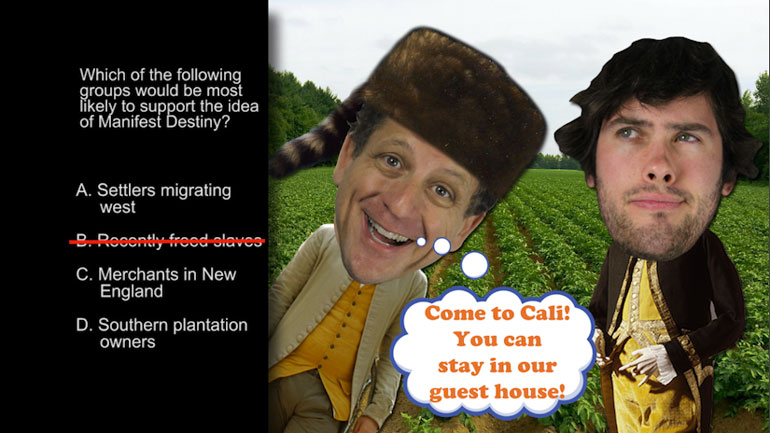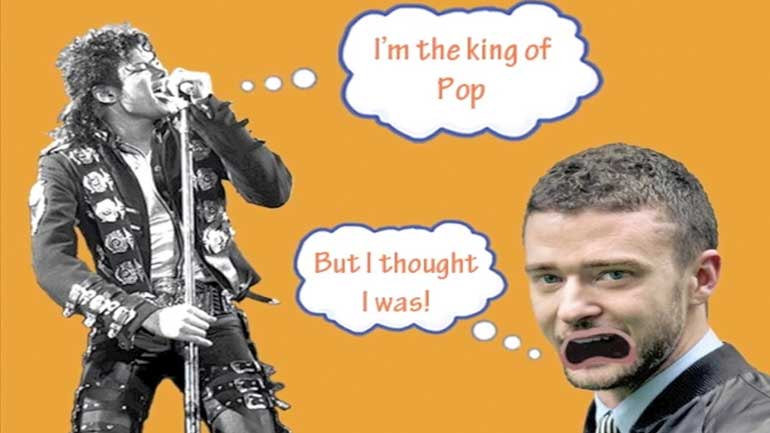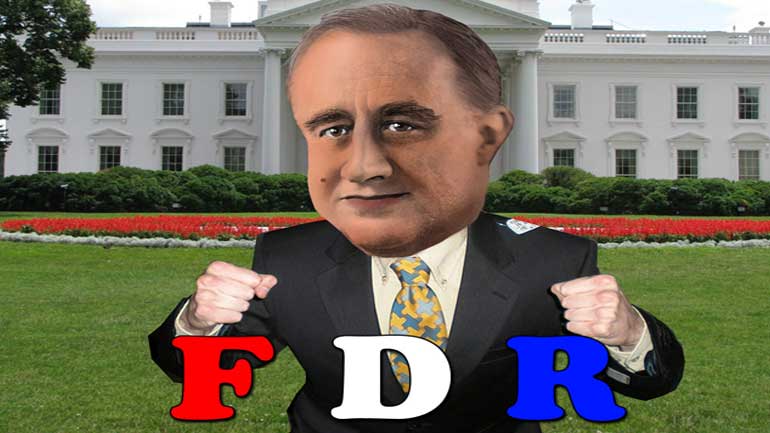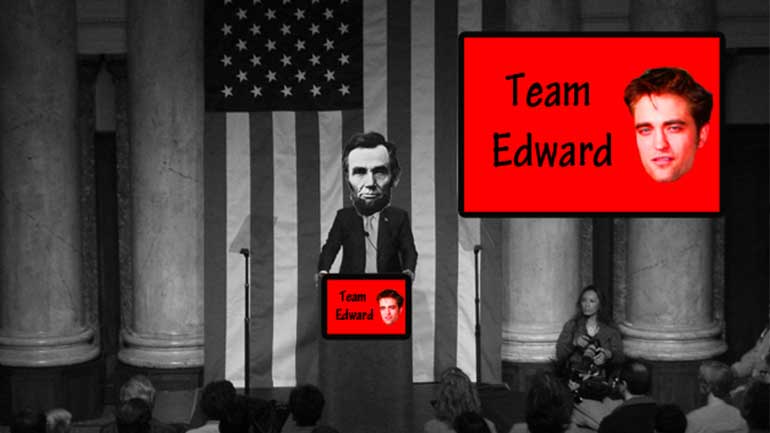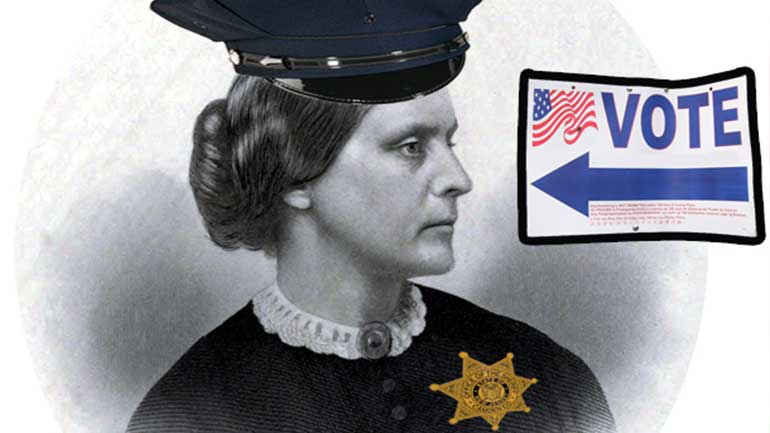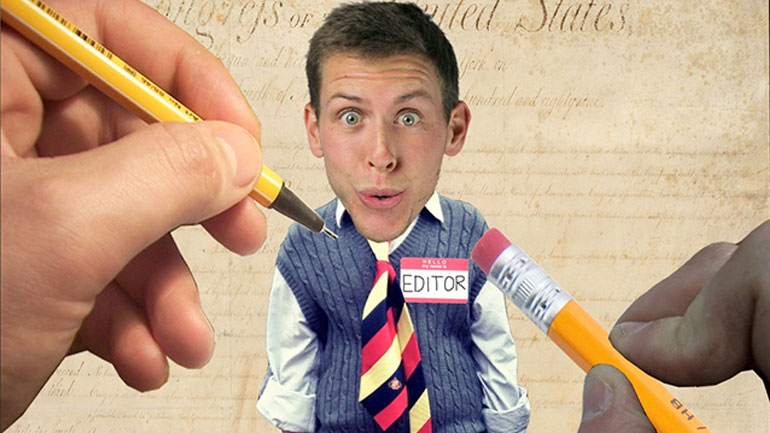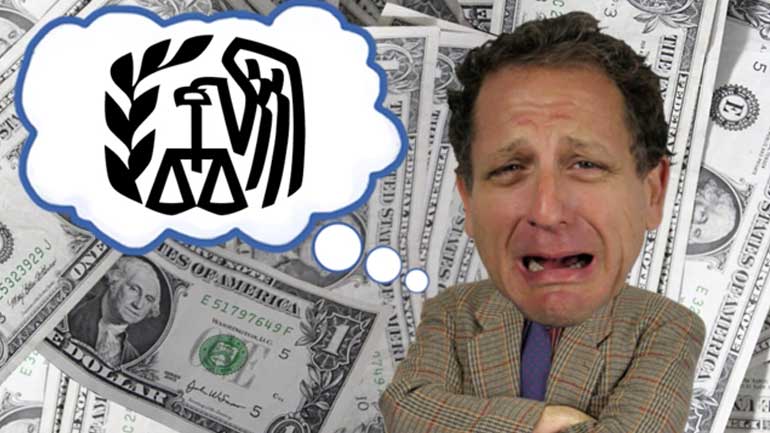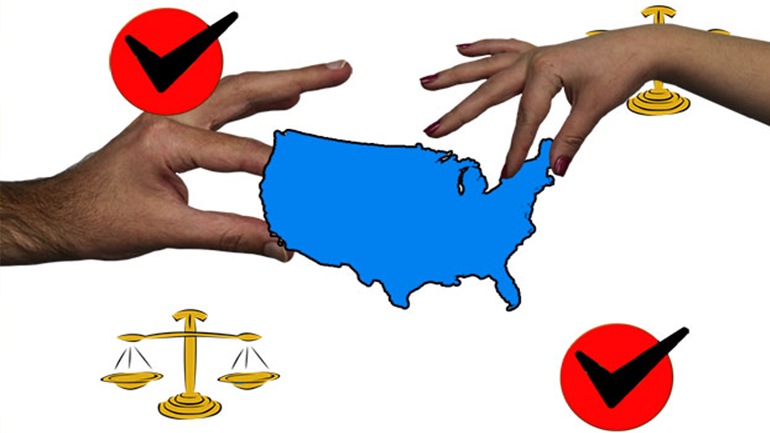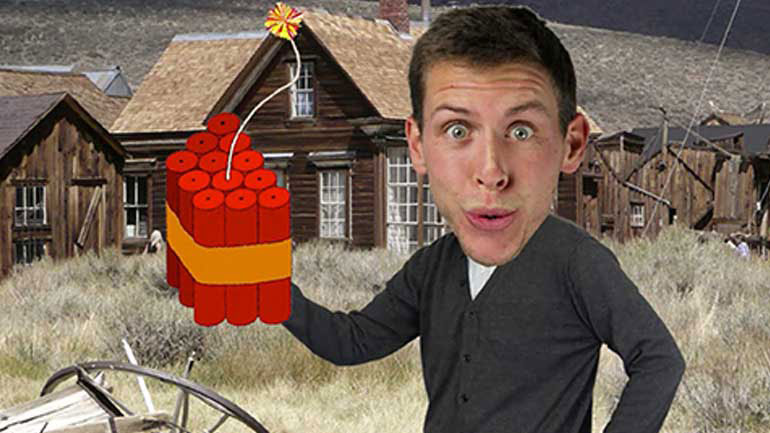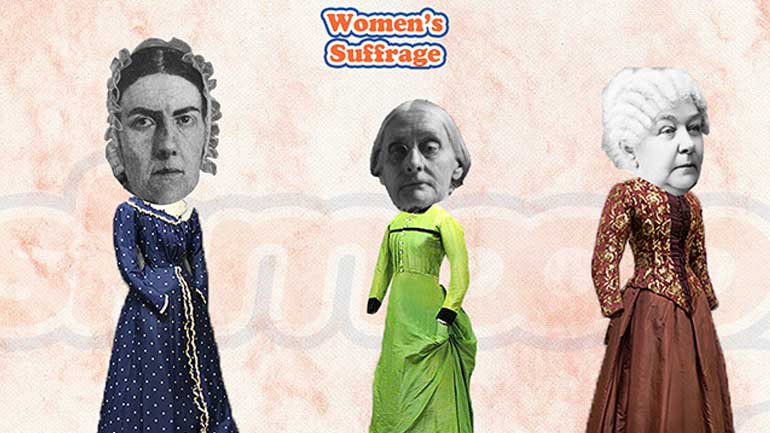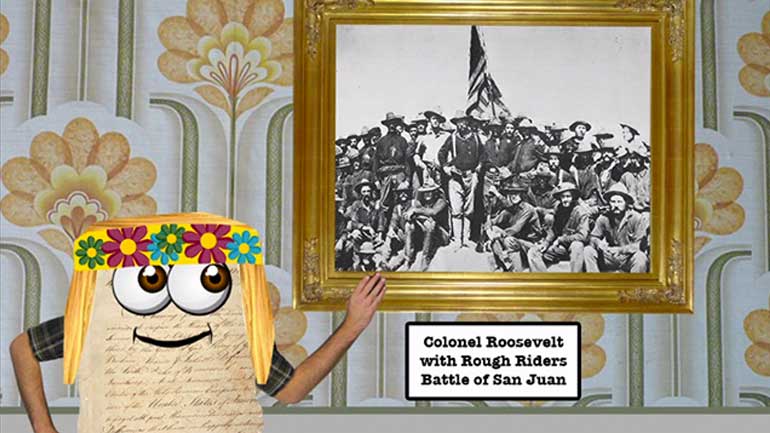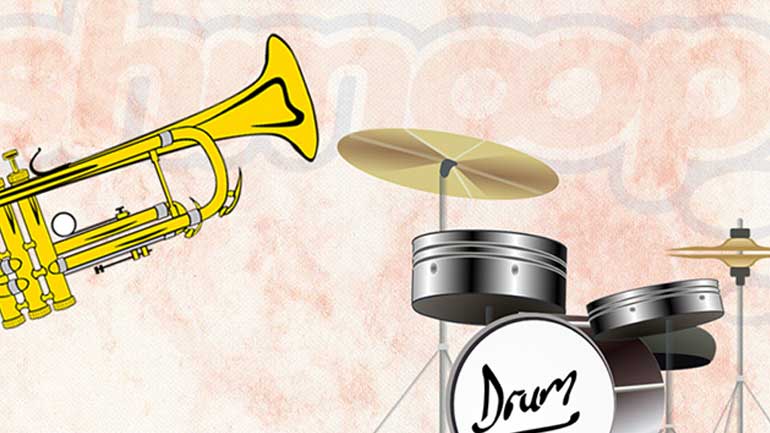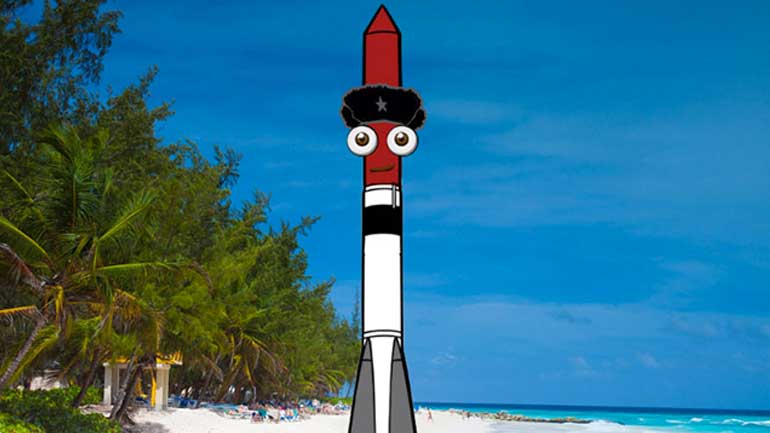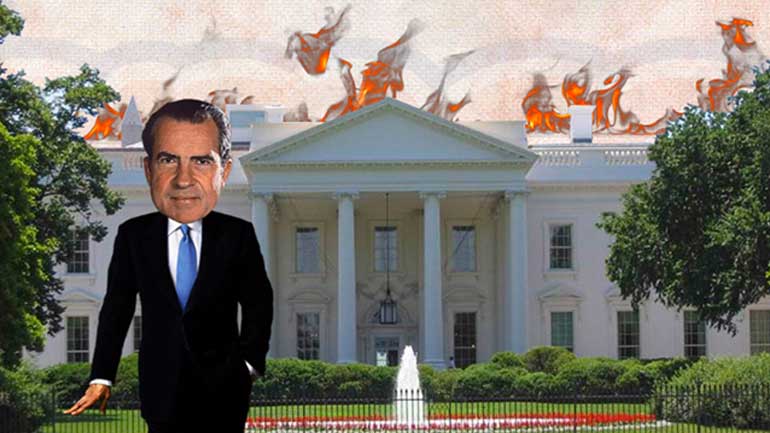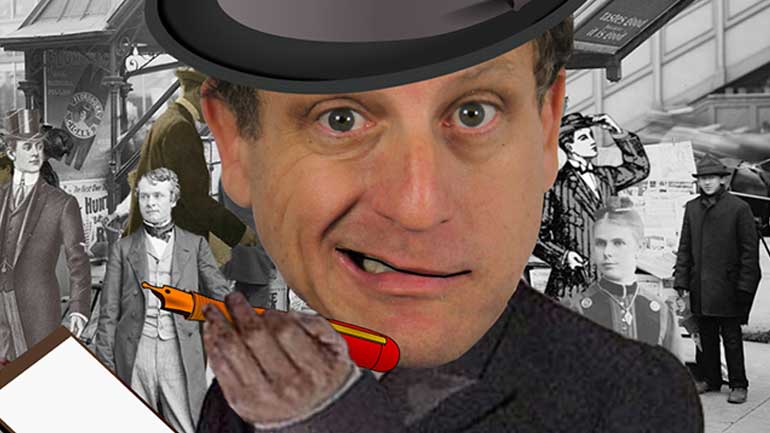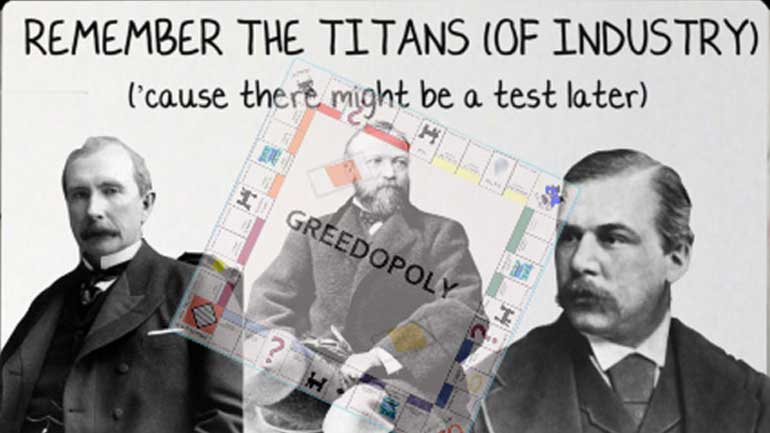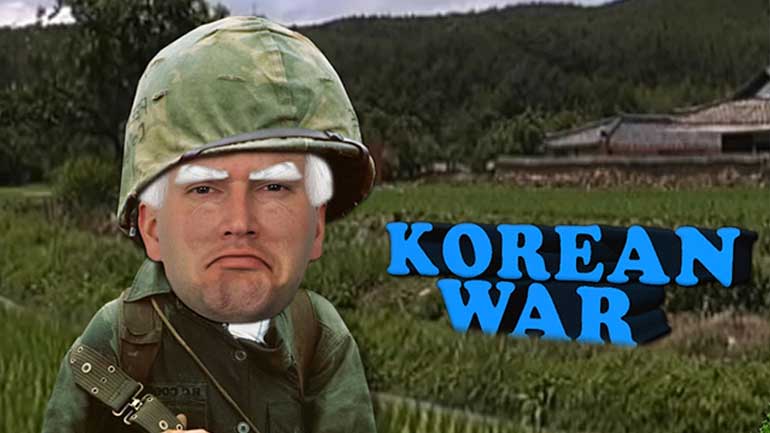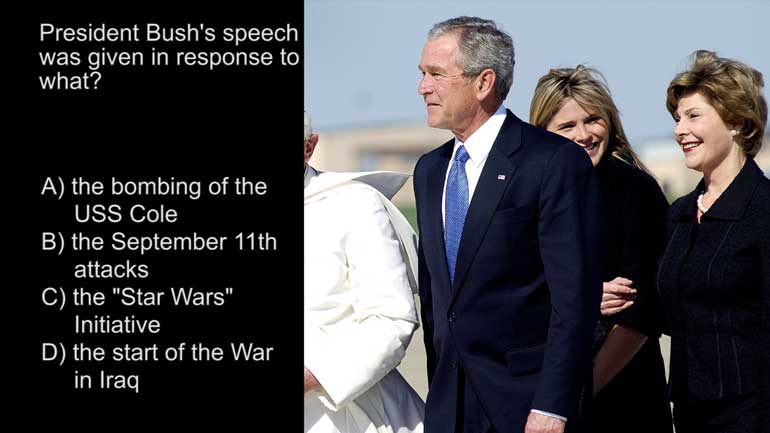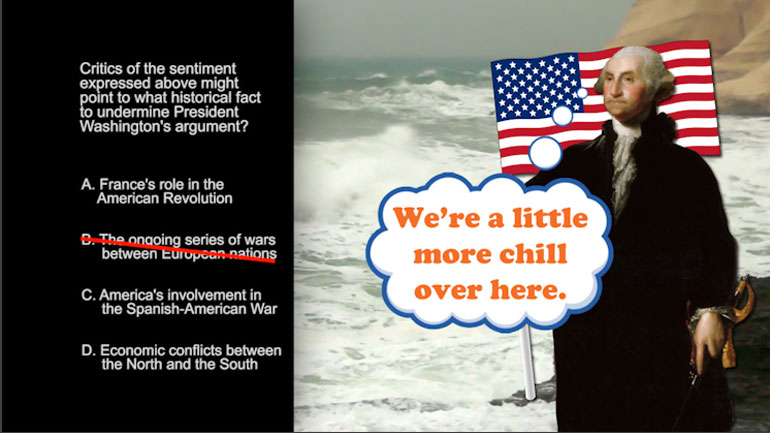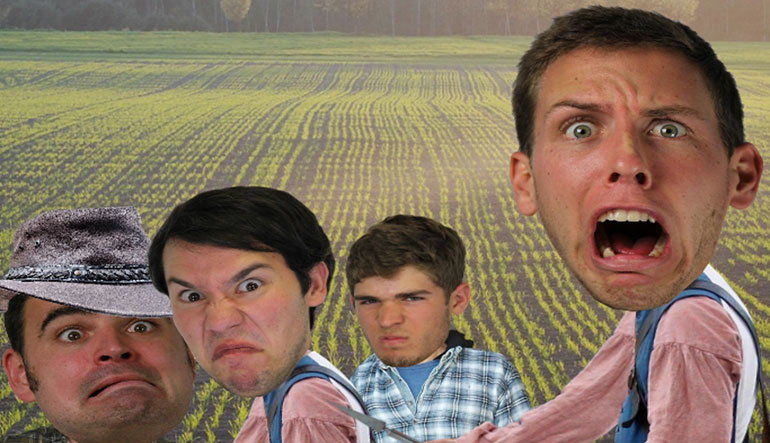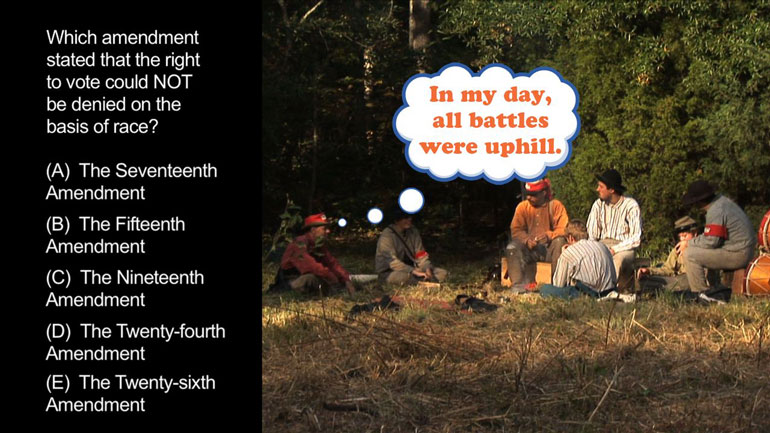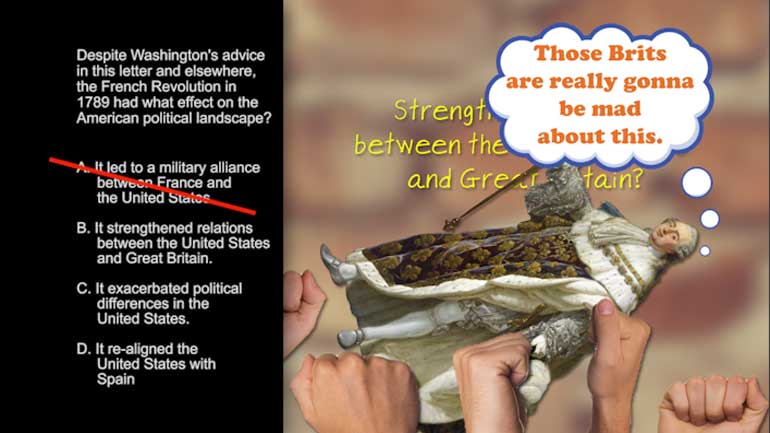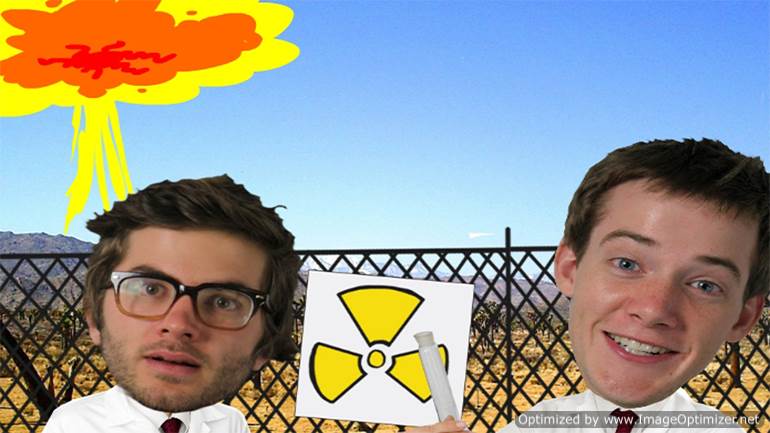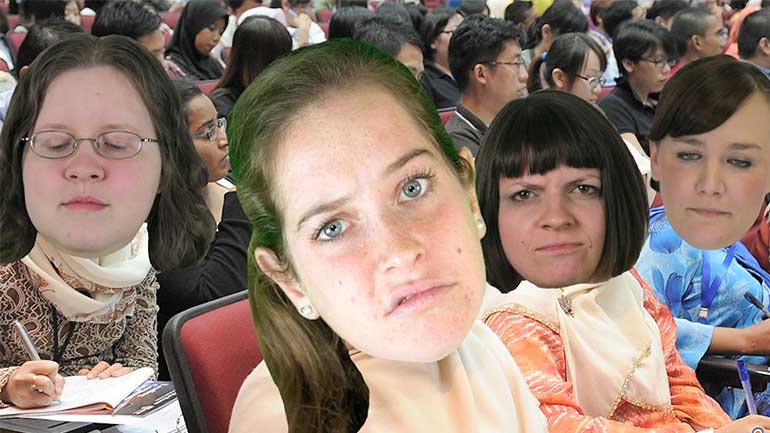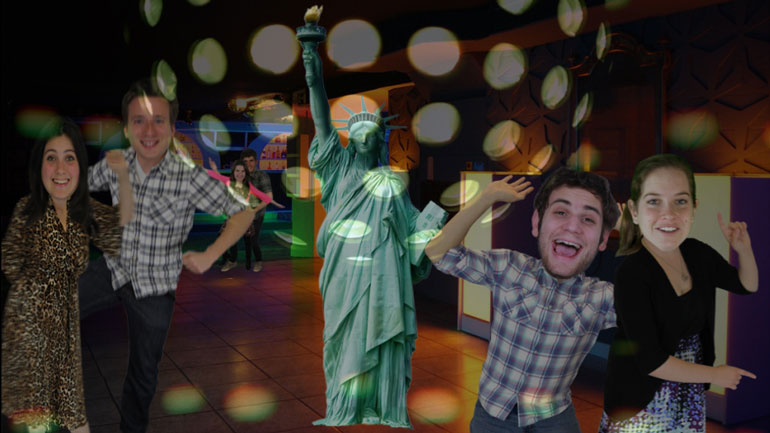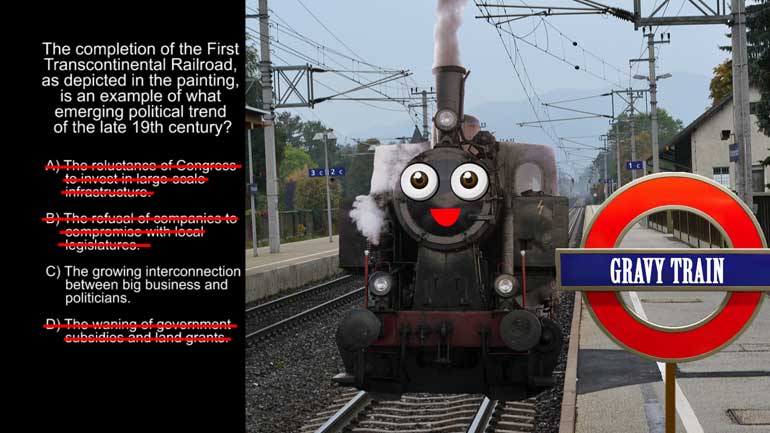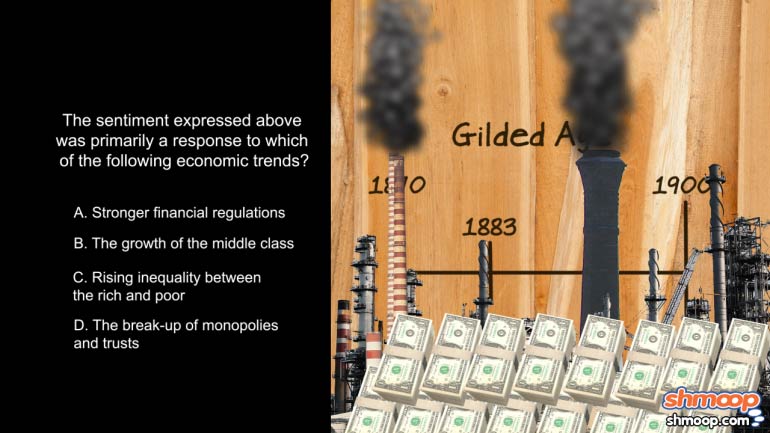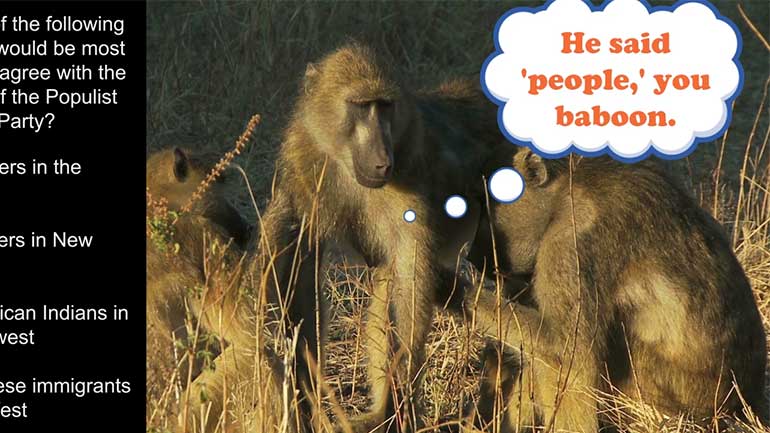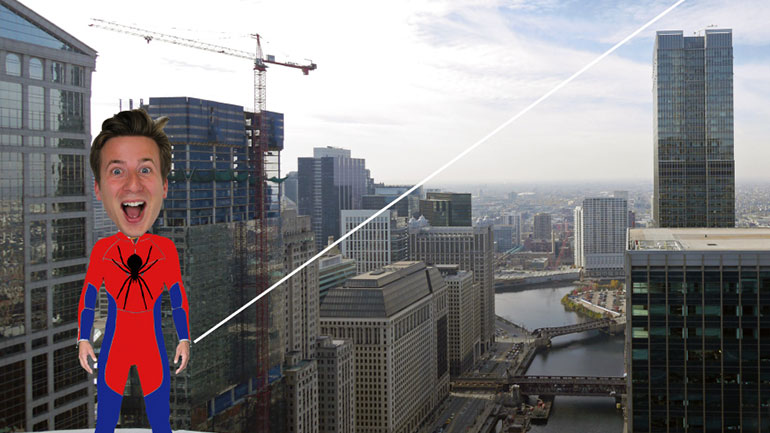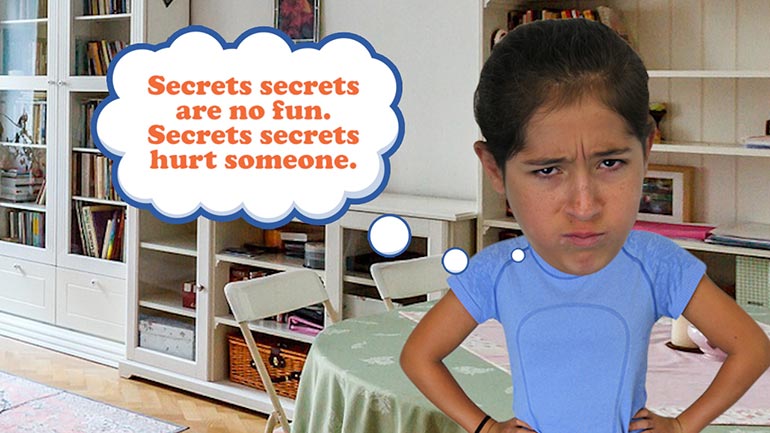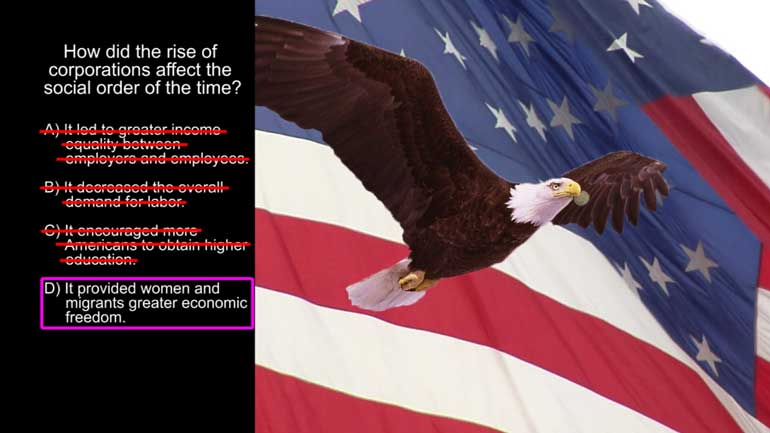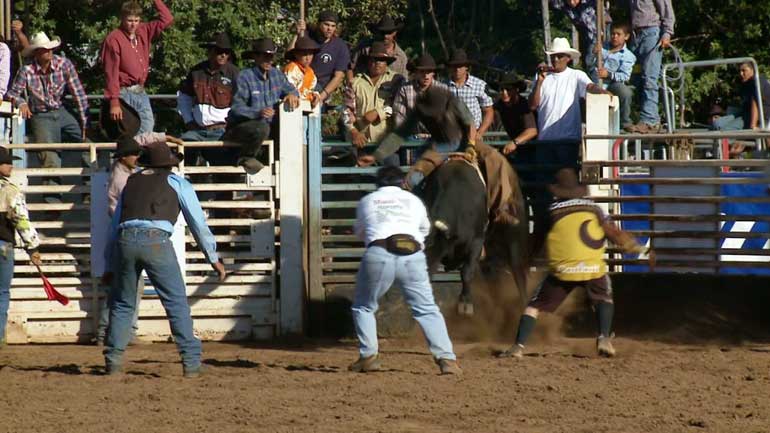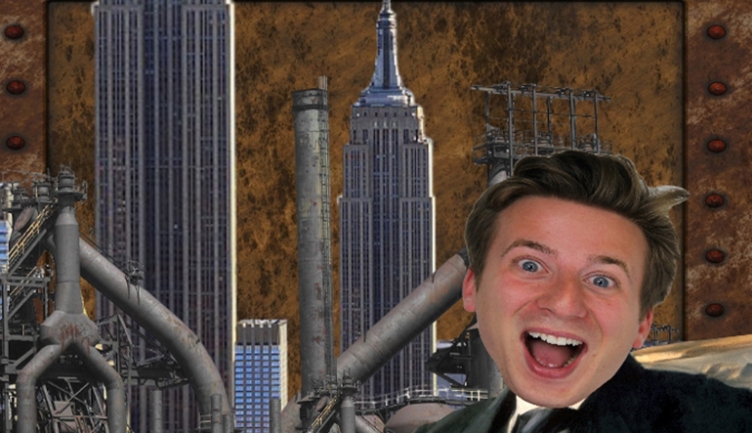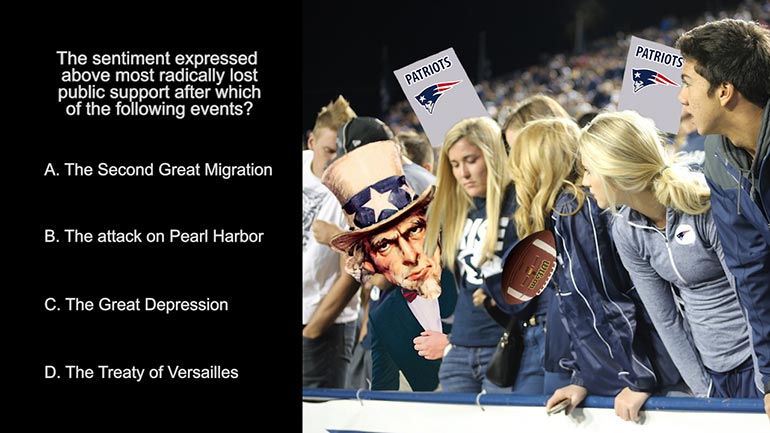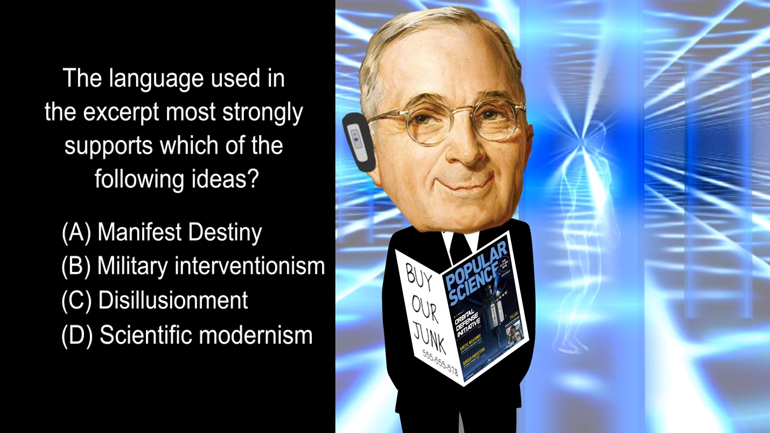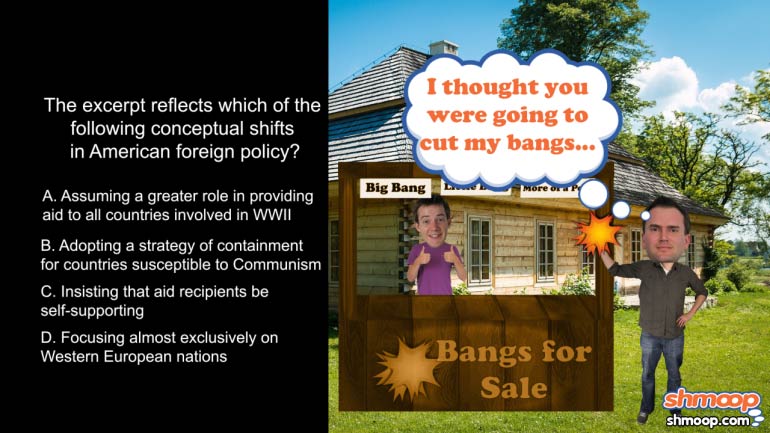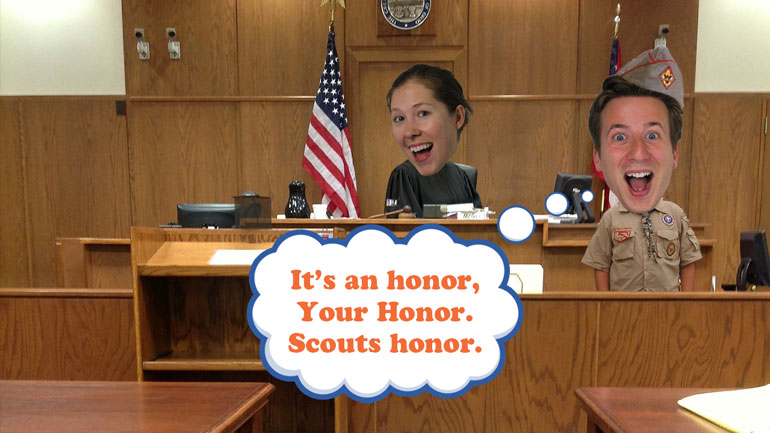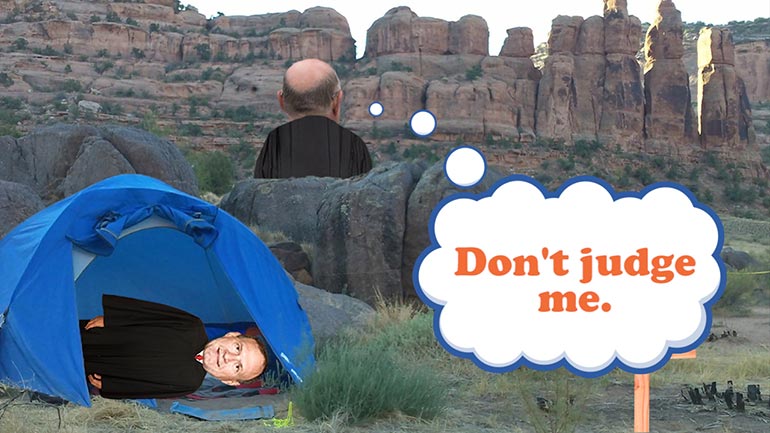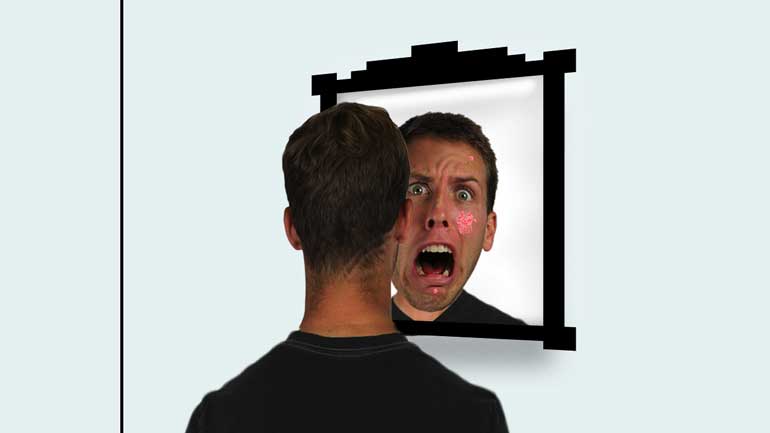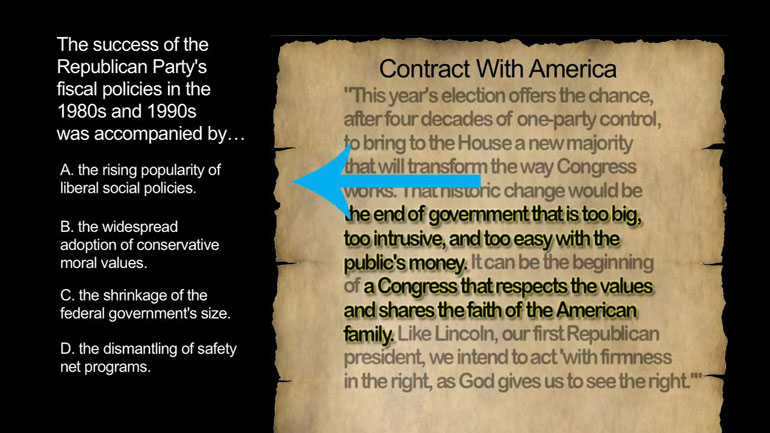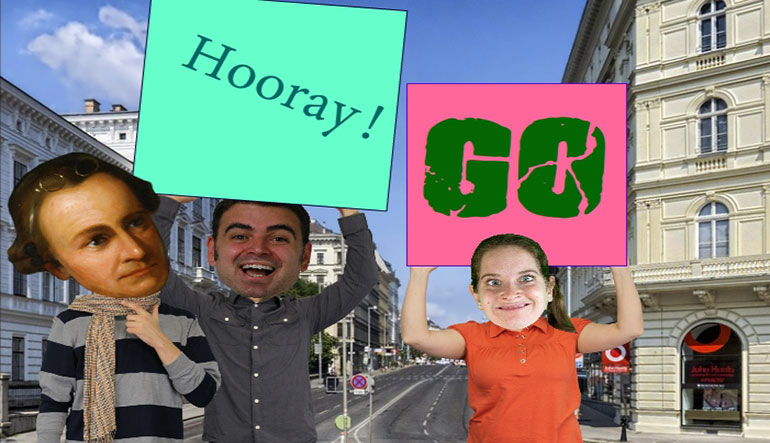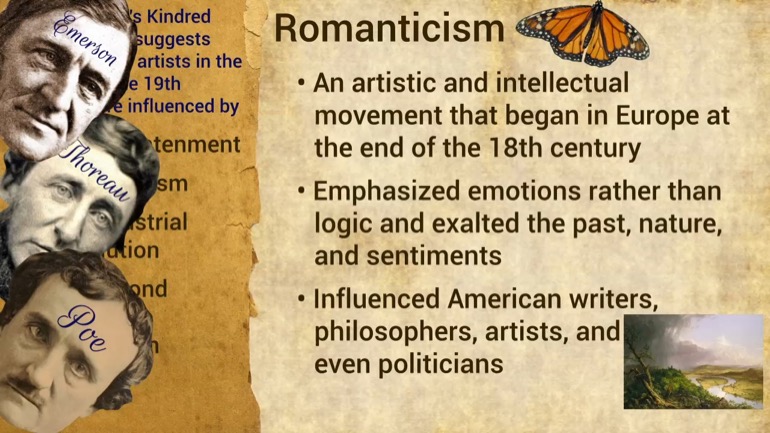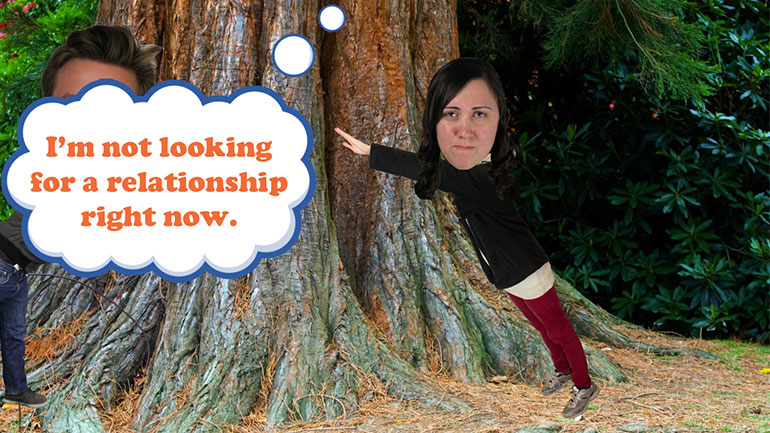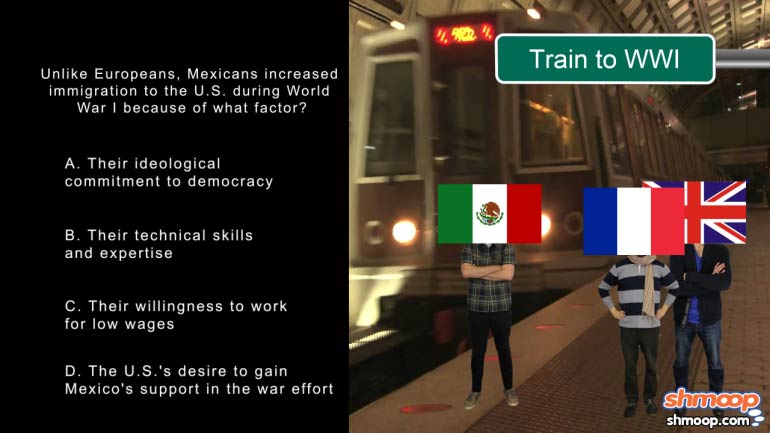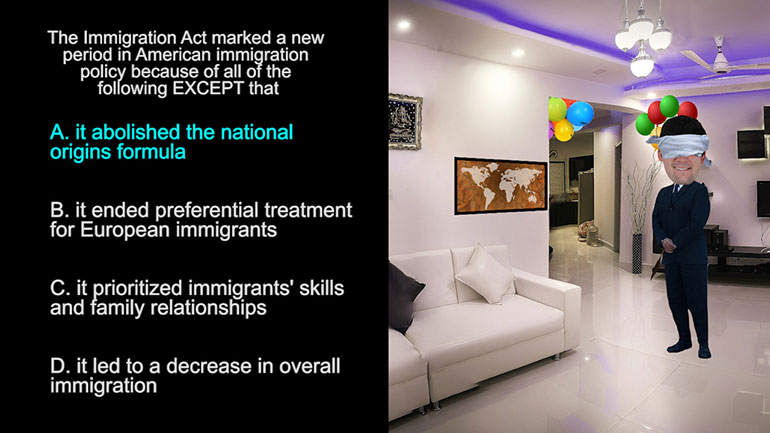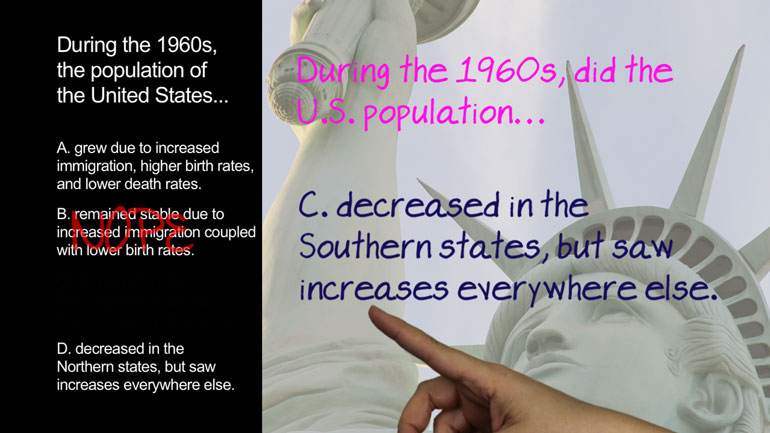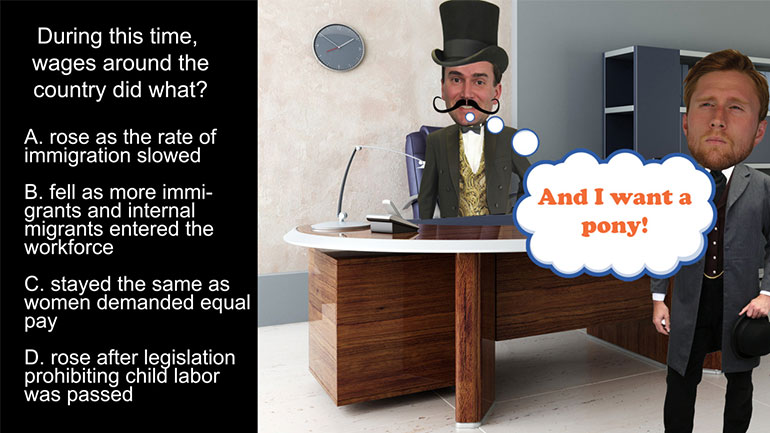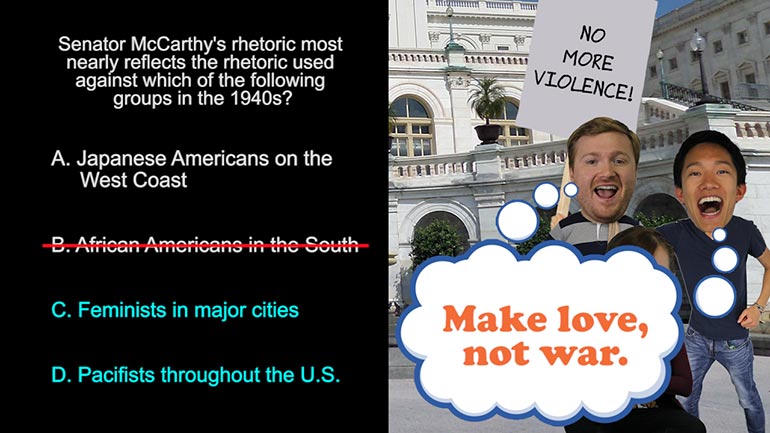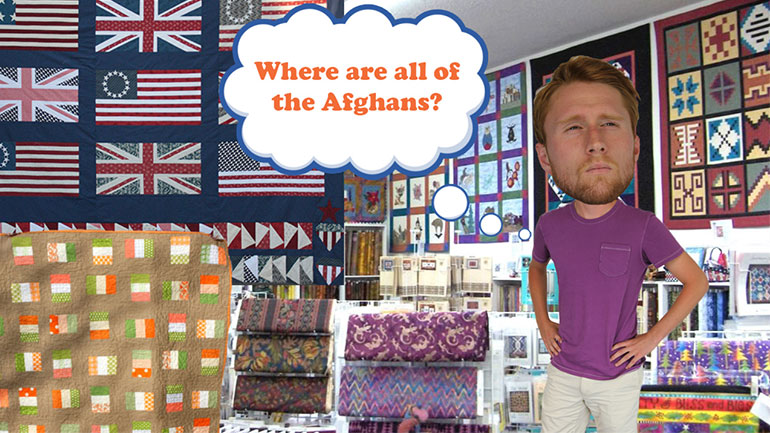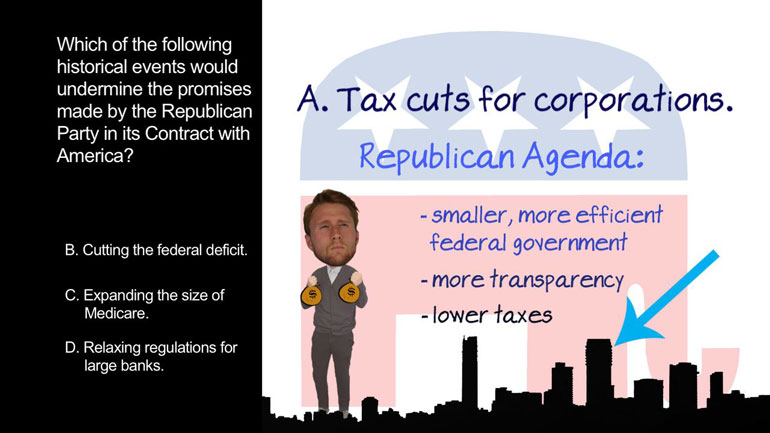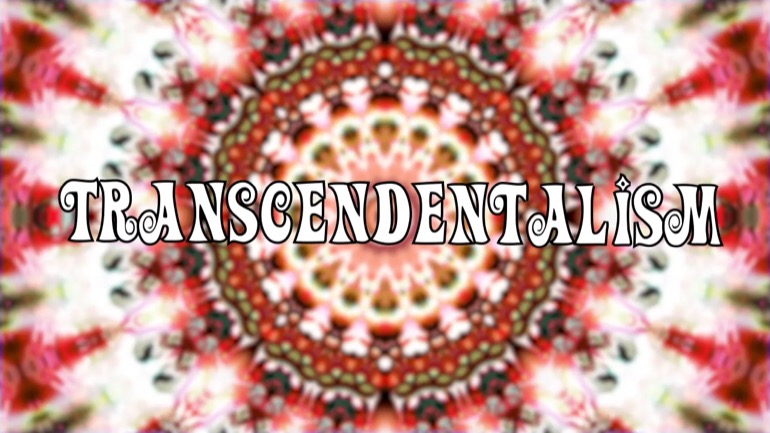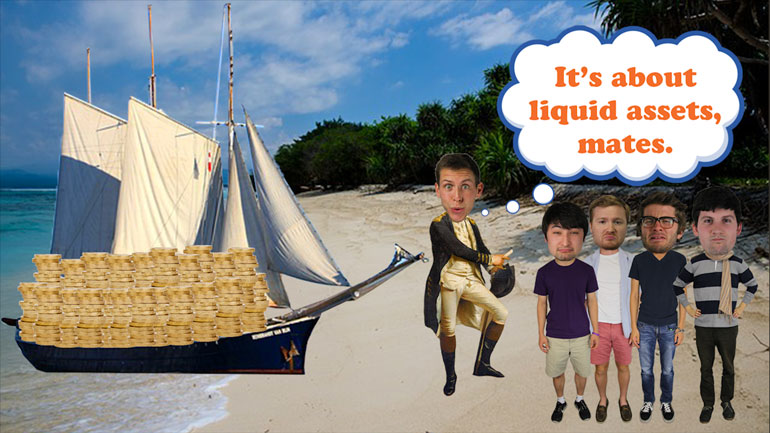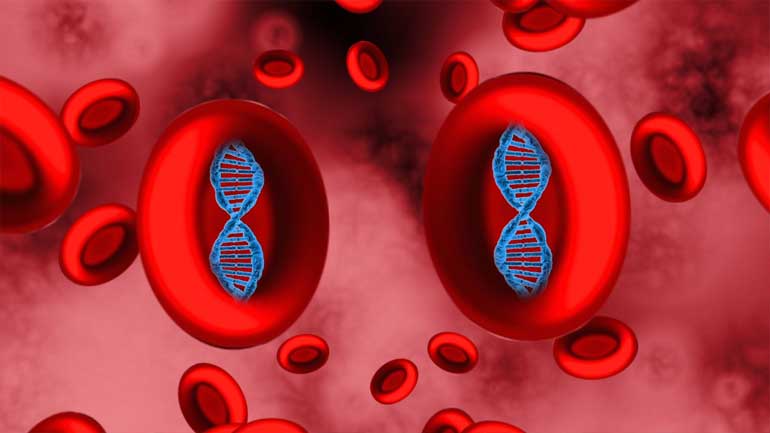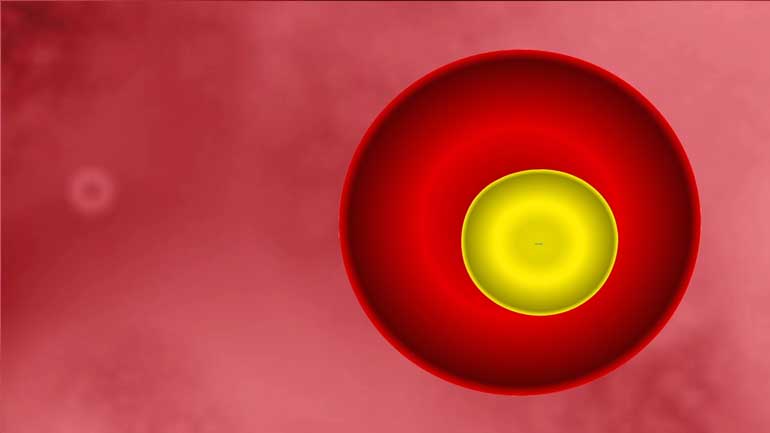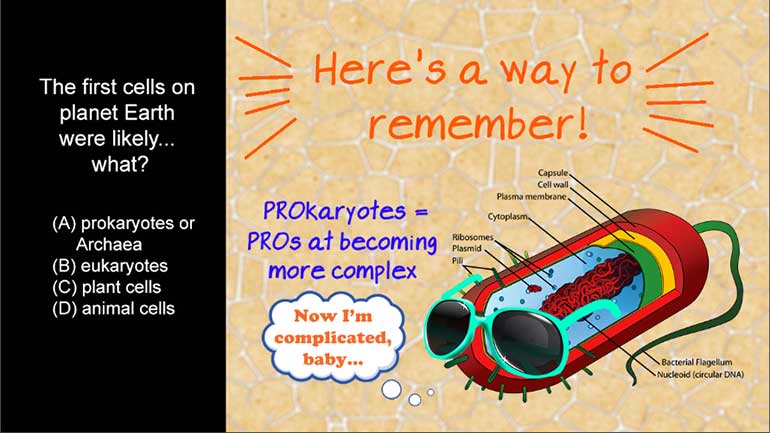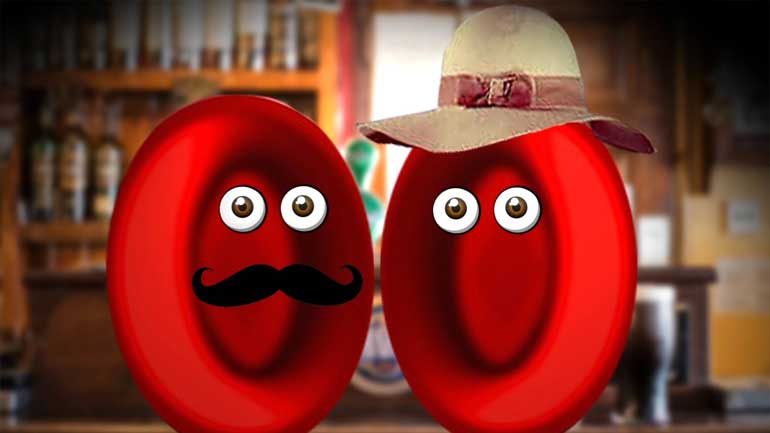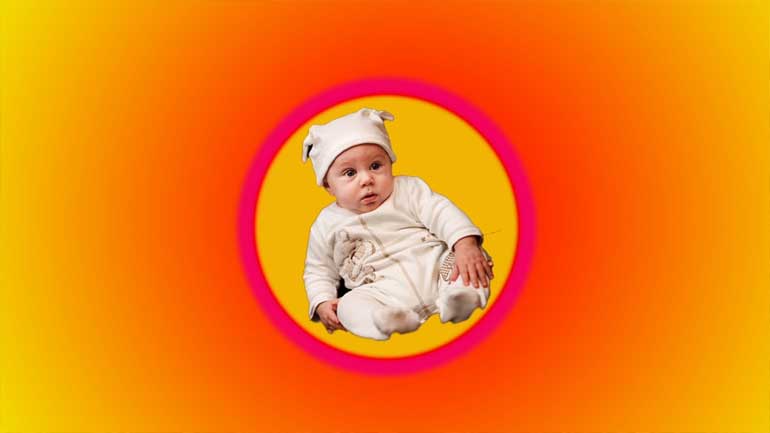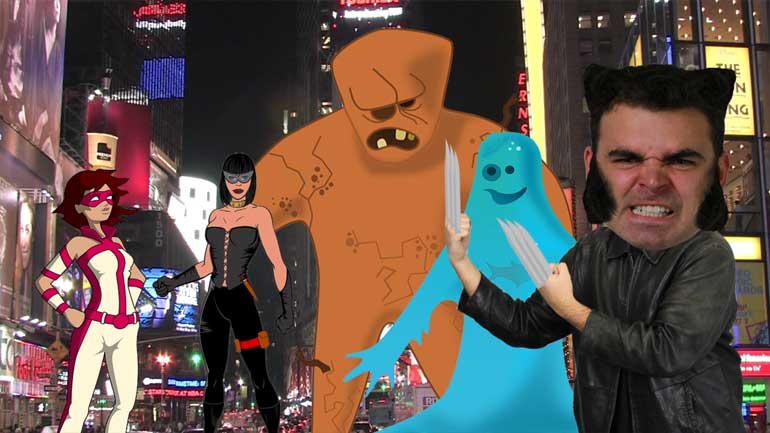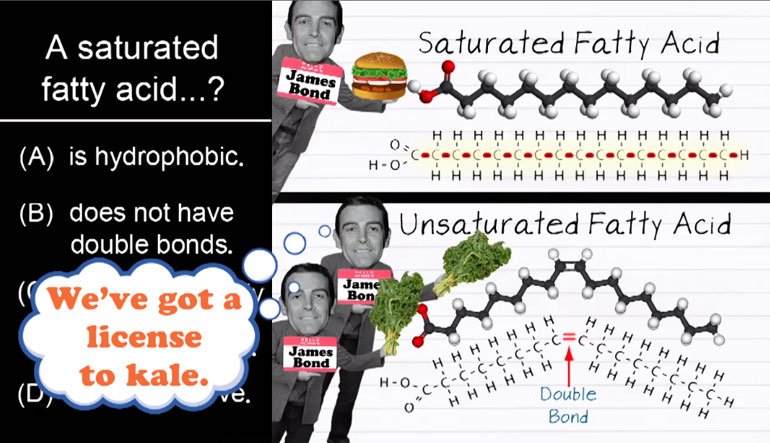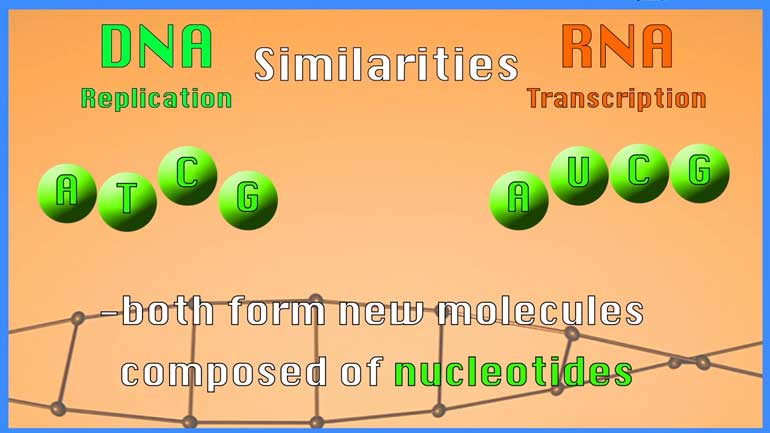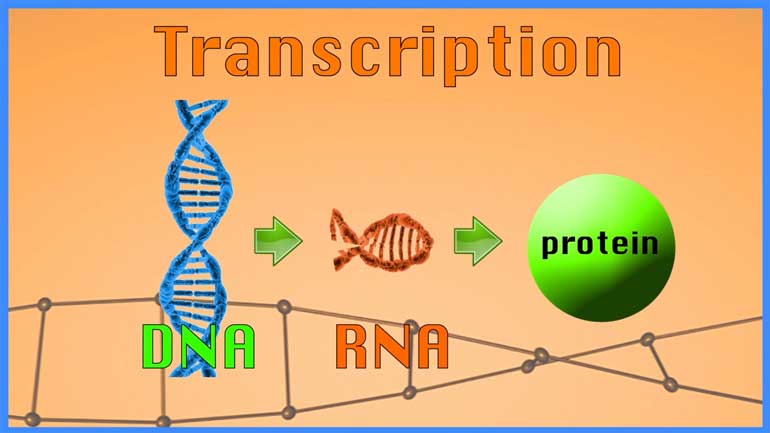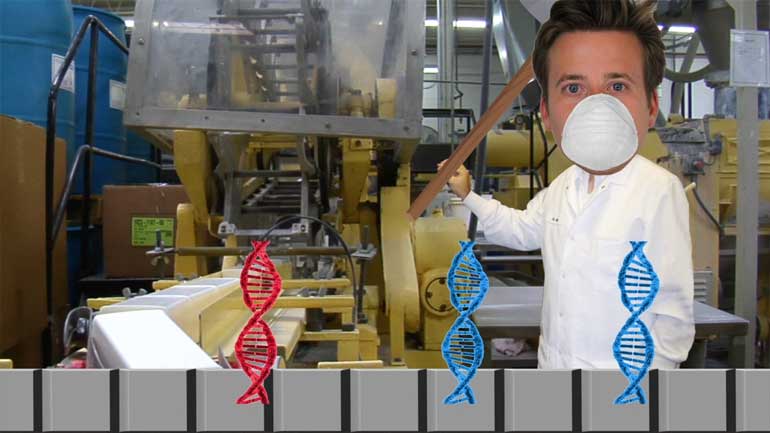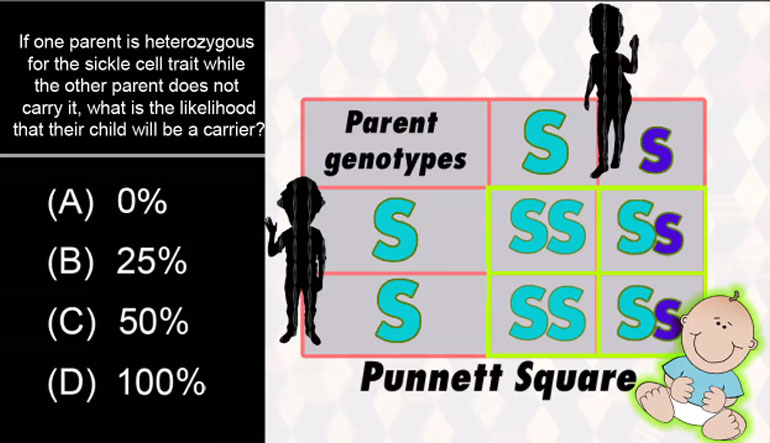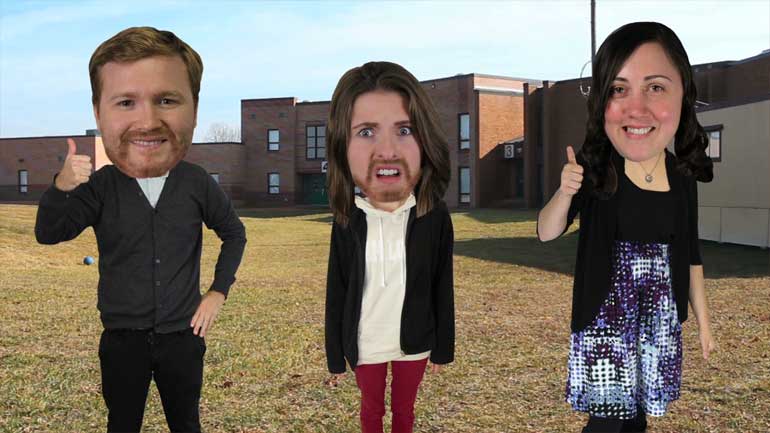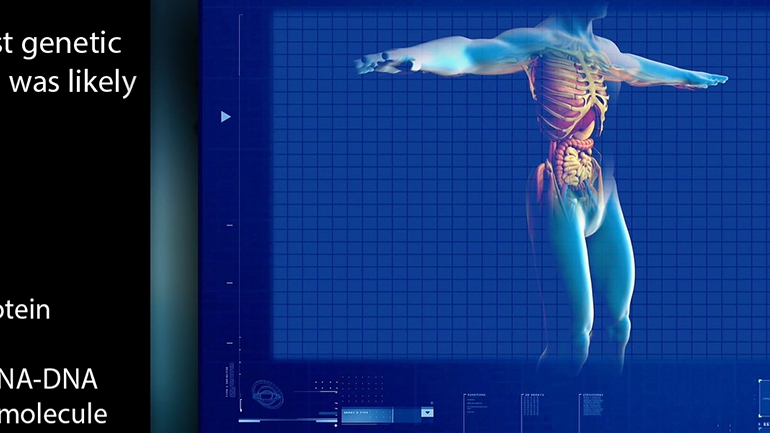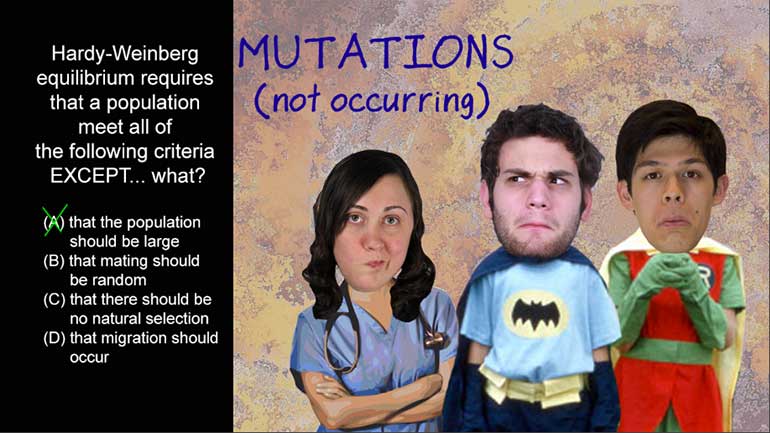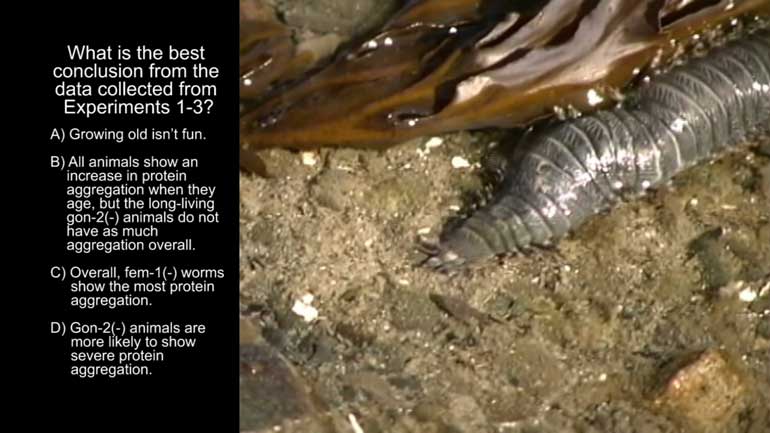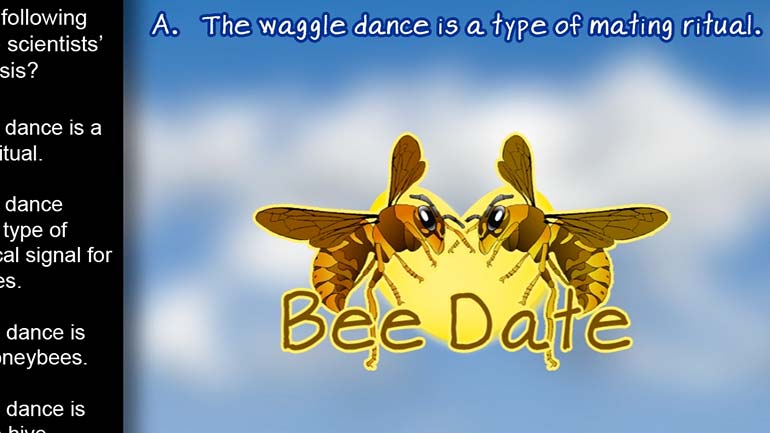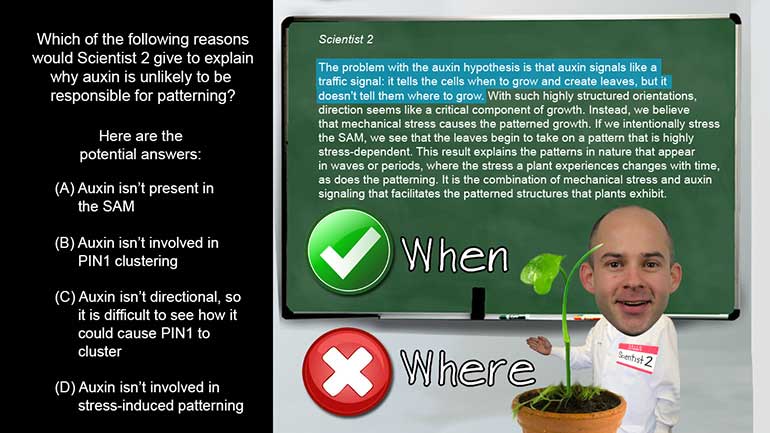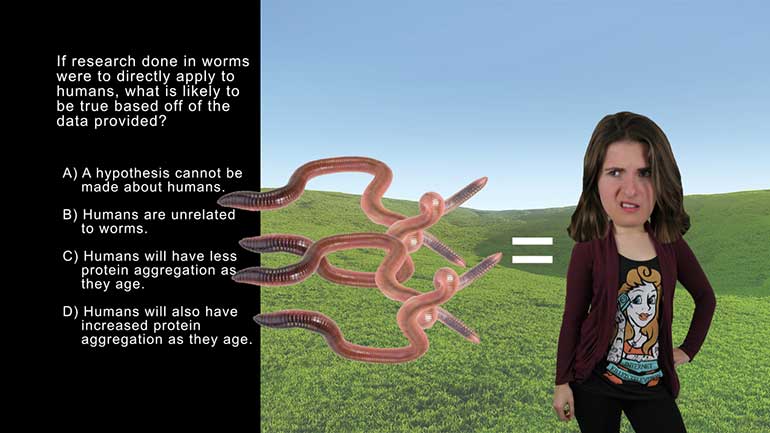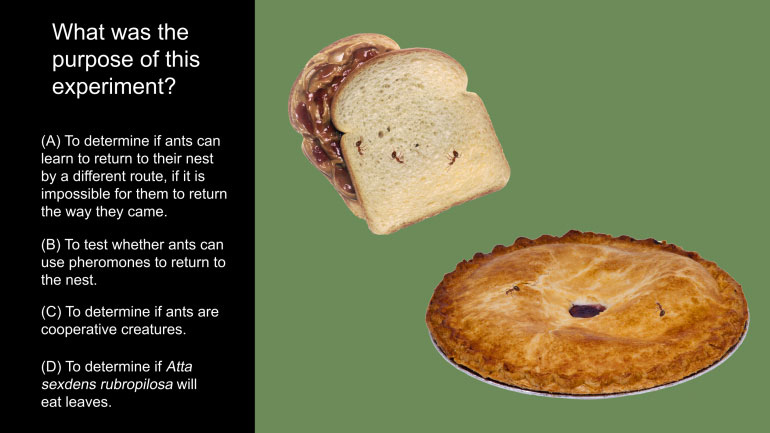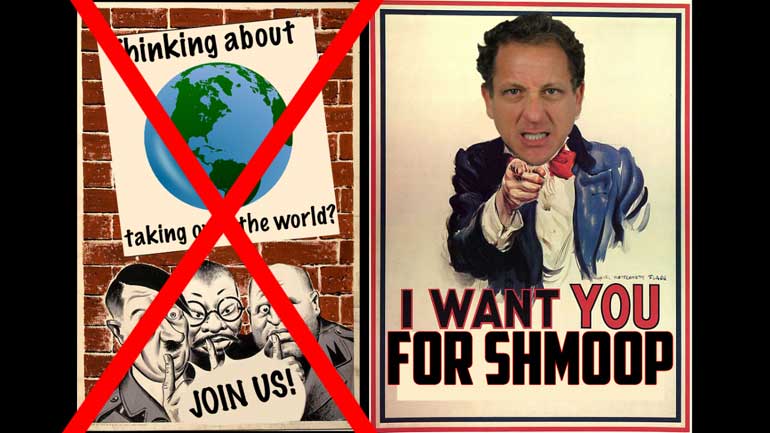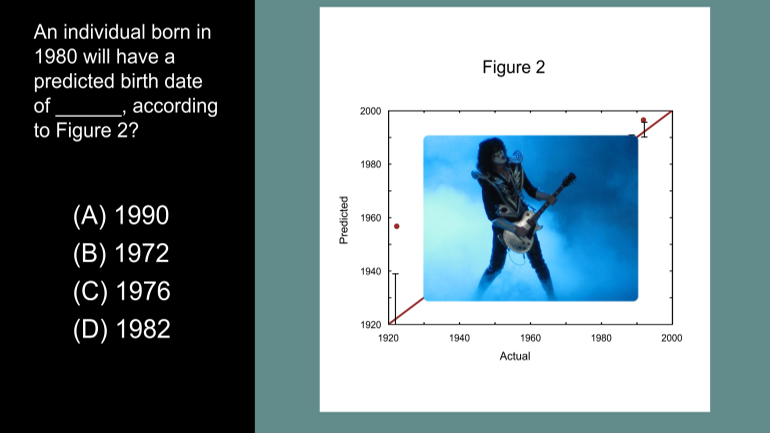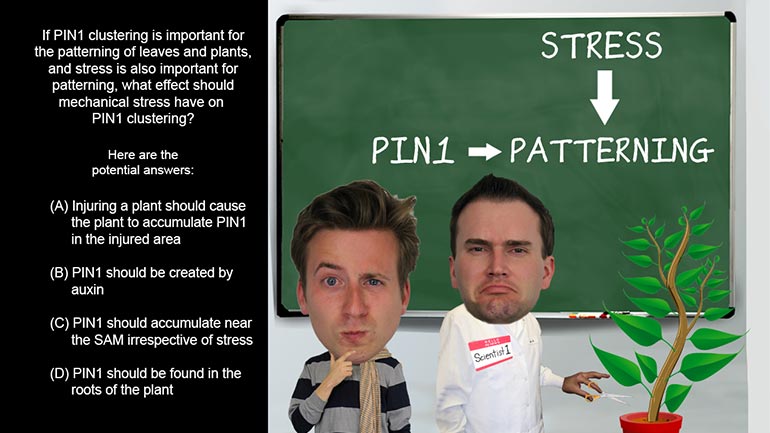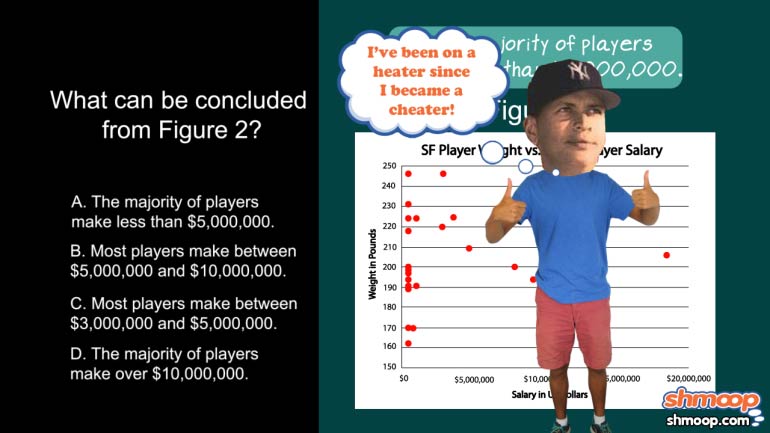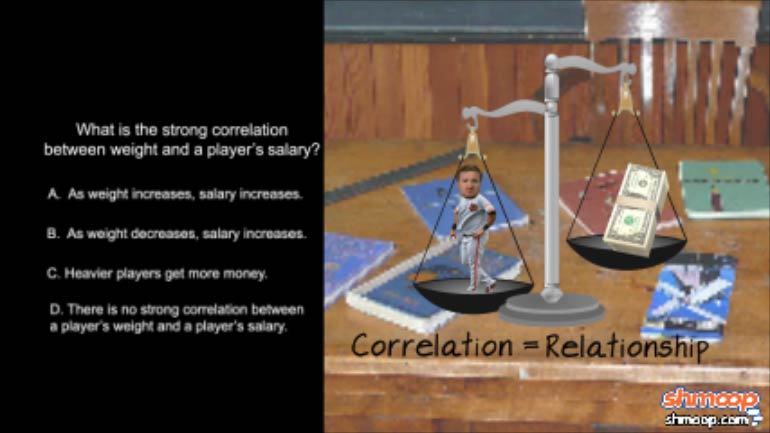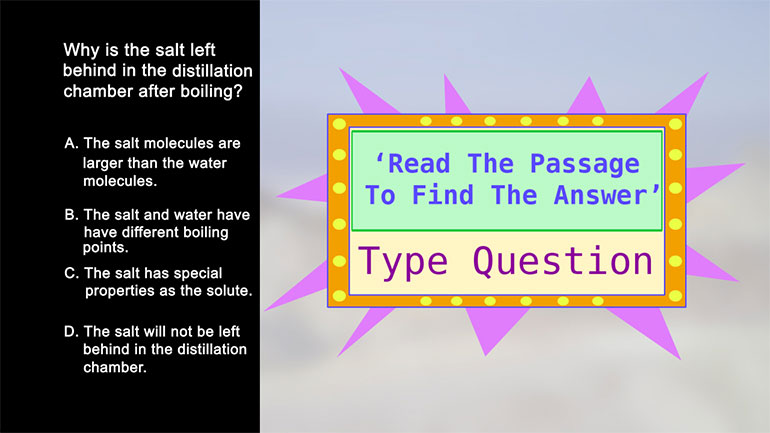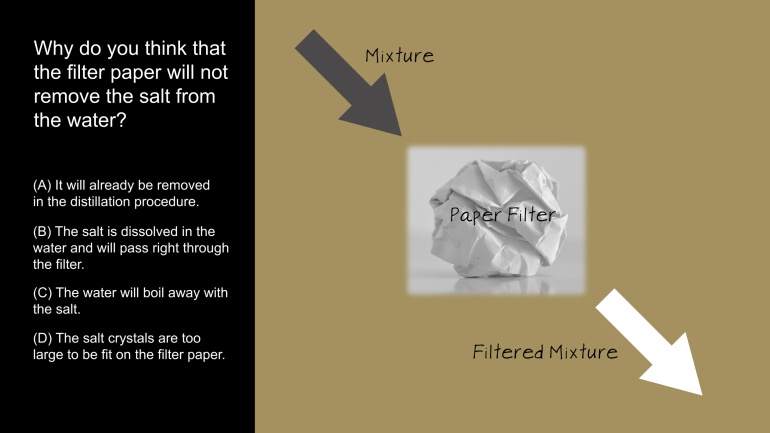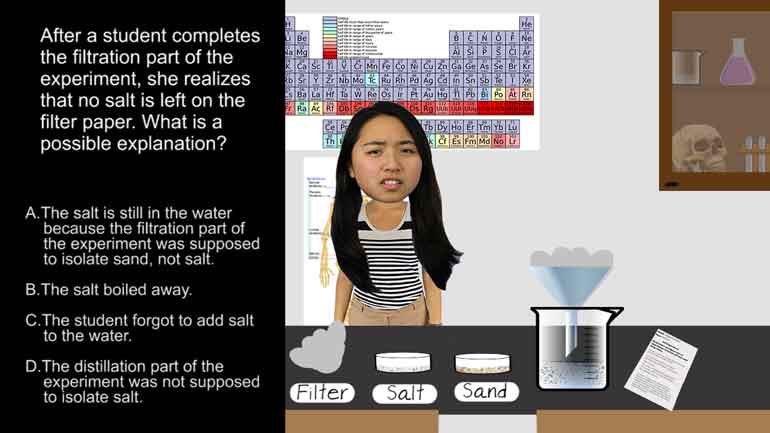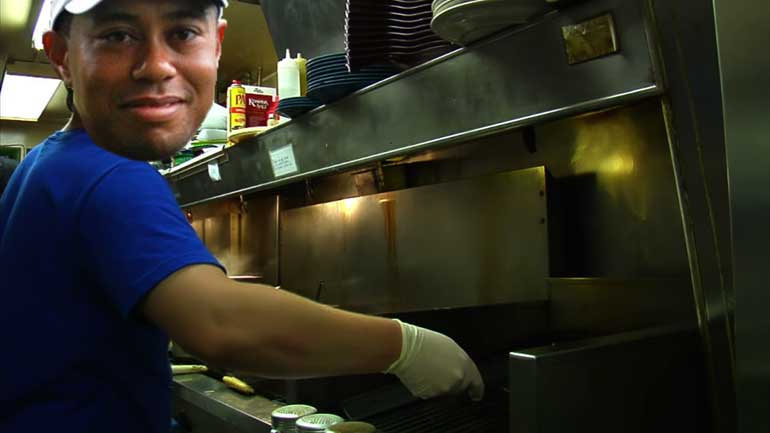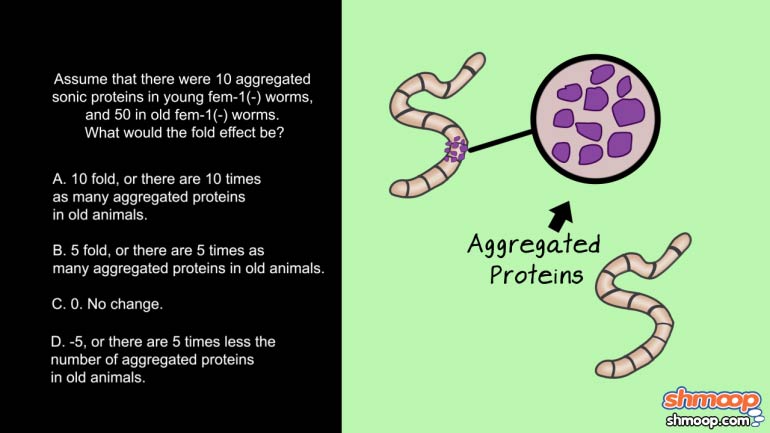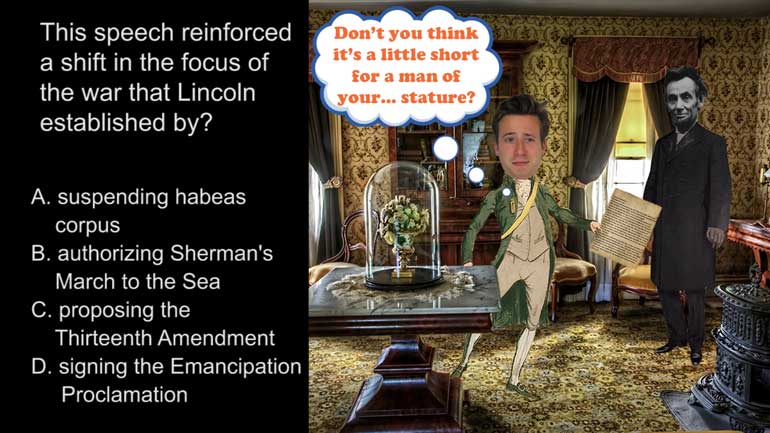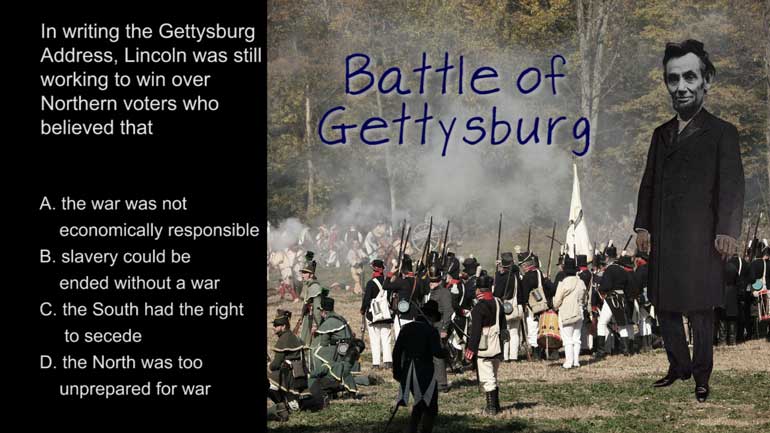ShmoopTube
Where Monty Python meets your 10th grade teacher.
Search Thousands of Shmoop Videos
Texas EOC Videos 540 videos
AP U.S. History 1.1 Period 5: 1848-1877. Which of the following groups would be most likely to support the idea of Manifest Destiny?
In the 1950s and 60s, people weren't just expressing their feelings toward the government—they were singing them, too. (Think Crosby, Stills, Nas...
Deal or no deal? FDR's New Deal provided hundreds of thousands of jobs in the public sector to bring the economy out of the Great Depression. It wa...
AP U.S. History 1.5 Period 3: 1789-1800 272 Views
Share It!
Description:
It was the best of questions, it was the worst of questions.... Well, you can decide how you feel about it. Check out this question about the French Revolution, si vous plait.
Transcript
- 00:00
[ musical flourish ]
- 00:03
And here's your Shmoop du jour, brought to you by the worst of times -
- 00:07
7:15 A.M.
- 00:09
Yeah, that.
- 00:10
All right, check out this excerpt.
Full Transcript
- 00:11
[ mumbles ]
- 00:14
[ mumbling continues ]
- 00:17
All right, and now the question.
- 00:19
Despite Washington's advice in this letter and elsewhere,
- 00:23
the French Revolution in 1789
- 00:25
had what affect on the American political landscape?
- 00:28
Hmm.
- 00:29
And here are your potential answers.
- 00:31
[ mumbles ]
- 00:33
[ mumbling continues ]
- 00:35
Ah, the French Revolution.
- 00:37
It was the best of times, it was the worst of times.
- 00:40
But mostly the worst of times.
- 00:42
All that chaos and violence across the sea was
- 00:44
bound to have an affect on the early American republic.
- 00:46
But what exactly was it?
- 00:48
Well, let's check out our potential answers.
- 00:50
Did the French Revolution A -
- 00:52
lead to a military alliance
- 00:54
between France and the United States?
- 00:56
Well, that'd make sense given that the French swooped in
- 00:58
to save the Americans at the end of their own revolution,
- 01:00
but remember Washington's letter.
- 01:02
He was advocating neutrality.
- 01:04
And that's what happened. Sorry, Frenchy.
- 01:07
Did the French Revolution B - strengthen relations
- 01:09
between the United States and Great Britain?
- 01:11
Well, the French were overthrowing their monarchy,
- 01:14
which in many ways was a direct challenge
- 01:16
to the English crown, as well.
- 01:18
The Americans just went through their own revolution
- 01:20
against the British, so they certainly wouldn't
- 01:22
grow closer to them right now.
- 01:24
And since the Spanish were aligned with the British,
- 01:26
well, we can eliminate D, as well.
- 01:28
So that means the French Revolution C -
- 01:30
exacerbated political differences
- 01:32
in the United States.
- 01:34
At first, most of the general public
- 01:35
supported France's revolution because of the whole "we hate kings" thing.
- 01:39
But as the Revolution persisted,
- 01:41
it led to greater violence,
- 01:42
bloodshed, and radical arguments which frightened many Americans.
- 01:45
Generally, the Democratic-Republican party led by Thomas Jefferson
- 01:49
supported the French,
- 01:50
while the Federalist party led by Alexander Hamilton
- 01:53
wanted to maintain ties with the British.
- 01:55
And since both of those gentlemen were
- 01:57
the most vocal members of Washington's cabinet,
- 02:00
well, you can bet things got a little steamy.
- 02:03
So C is the right answer.
- 02:04
Looks like Thomas Jefferson caught something he couldn't shake
- 02:07
from living all those years in Paris.
- 02:09
[ chuckles ]
Related Videos
AP U.S. History Exam 2.45. The journey shown on the map was an example of...what?
AP U.S. History Exam 2.26. This speech reinforced a shift in the focus of the war that Lincoln established by...what?
What did the Spanish messengers bring with them to North America? Hint: you probably wouldn't be thrilled to get this for your next birthday.
AP U.S. History Diagnostic 24. How did the United States choose containment over the National Security Council Report in Latin America?
AP U.S. History Exam 2.25. In writing the Gettysburg Address, Lincoln was still working to win over Northern voters who believed that...what?
